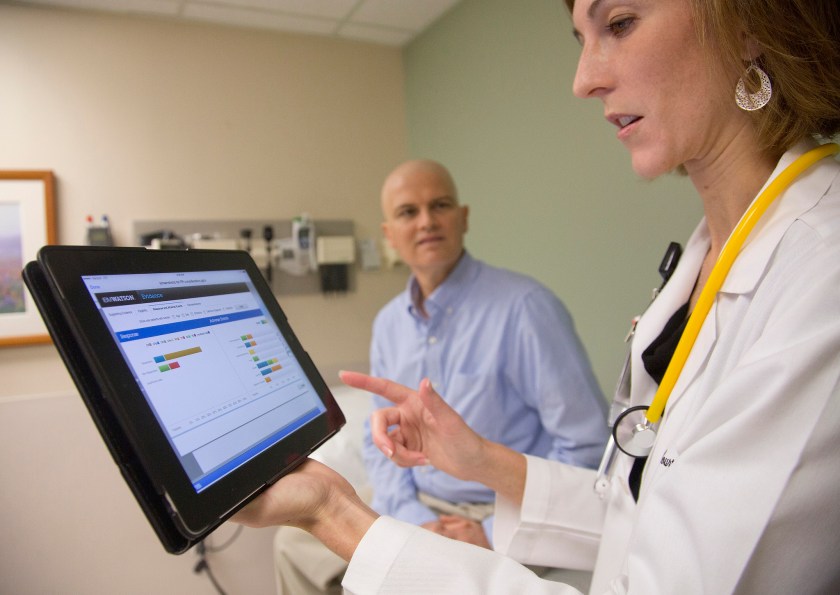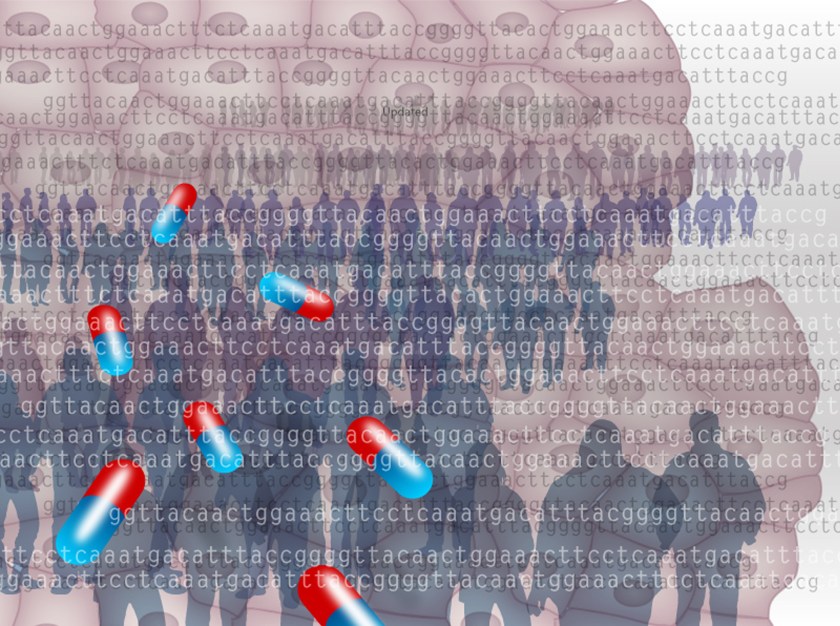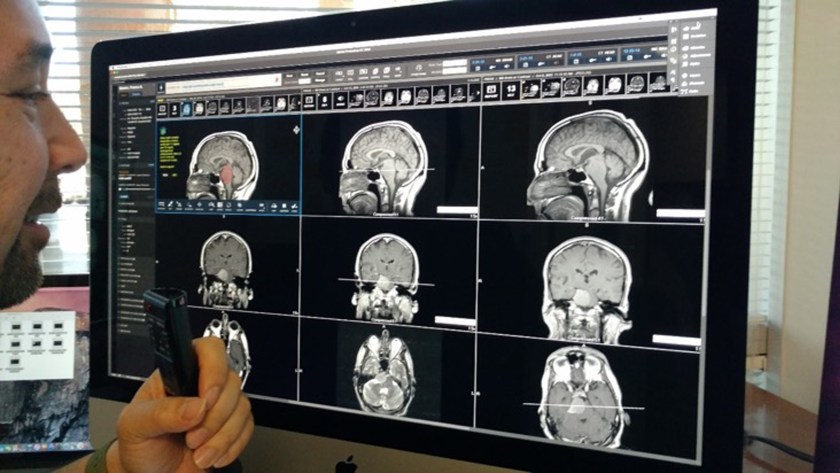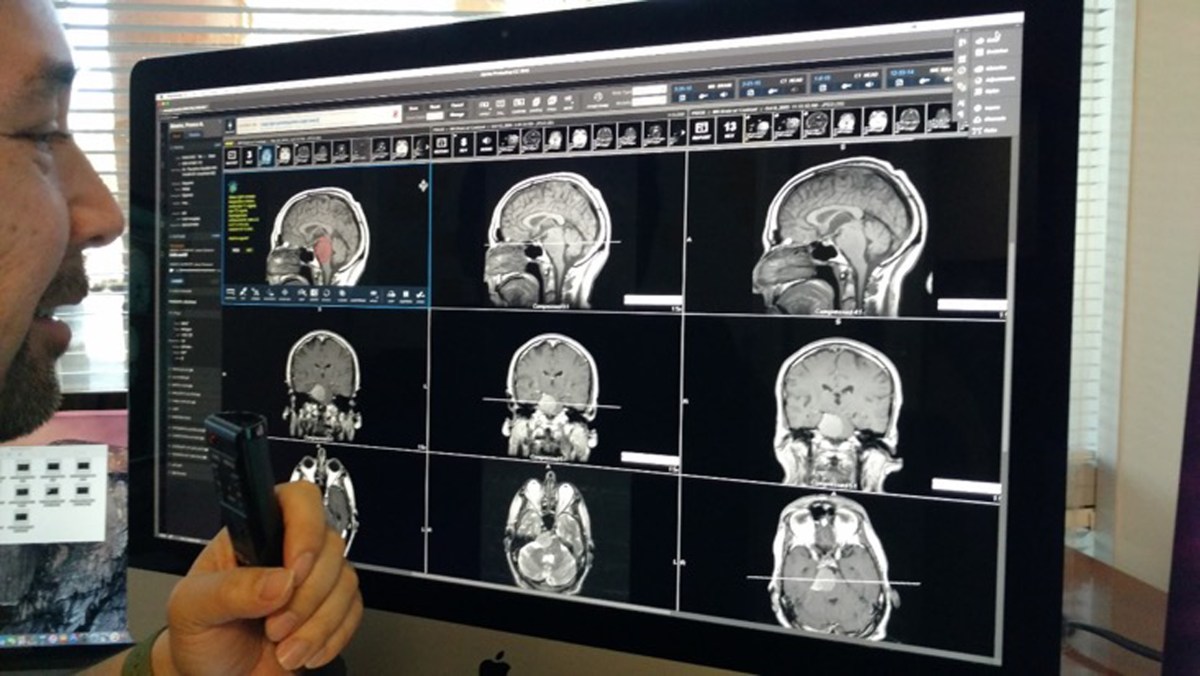
The latest arms race in the tech world i artificial intelligence. Companies like Amazon, Google, Microsoft, and IBM are all competing to win the A.I. sweepstakes. And each corporation is applying A.I. in different ways. Amazon, for instance, is using it to improve on its commerce business while Salesforce, a business-to-business software company, is targeting sales and customer service with it.
IBM, however, has its sights set on the health care industry. Using its artificial intelligence technology Watson, the tech giant is hoping to improve the way doctors diagnose patients and engage in medical research. To that end, IBM’s spent over $4 billion throughout the last few years to acquire companies with large amounts of medical data to feed into Watson. Like any machine learning system, it’s only as good as the data it’s working from. By using Watson to sort through the stockpile of ever-growing academic research and anonymous medical records, IBM is hoping the A.I. will be able to notice patterns that result in more precise medical analyses.

Yet IBM’s now a year into the Watson Health program, and some have their doubts about the tech company’s ability to build a sustainable business around it. “IBM has pursued big, bespoke moonshot initiatives that can take years and are extremely expensive,” Tom Austin, a research fellow at Gartner, told the New York Times. “It seems like they’re swimming upstream with that.” Since IBM’s revenue has declined for the last 17 quarters in a row, the stakes are predictably high. While IBM’s Watson initiative did get off to a slow start, it’s picking up steam through partnerships with the Mayo Clinic, Quest Diagnostics, and Memorial Sloan Kettering Cancer Center, among others.

It could simply be a matter of time before IBM’s multibillion dollar bet on Watson pays off. Research company IDC says the market for A.I. software and services is poised to bloom from $8 billion in 2016 to $47 billion over the next four years. Health care is expected to deliver the most revenue growth by 2020 among the industries analyzed in IDC’s report.
The biggest immediate gain from Watson Health looks to be in the oncology sector, particularly benefiting from the Sloan Kettering pact. Capitalizing on partnerships such as this, Watson could provide bespoke treatment suggestions using genomic analysis typically reserved for the few elite centers that currently offer it. IBM is also hoping its platform will provide any doctor with greater insight in order to better treat the 14 million Americans living with cancer, many of whom would otherwise lack the access or resources to get the very best treatment.
Learn how Watson Health works in the video below.
For more information on IBM’s investment in big data and health analytics, click here.
The Charge will help you move better, think clearer and stay in the game longer. Subscribe to our wellness newsletter today.

























